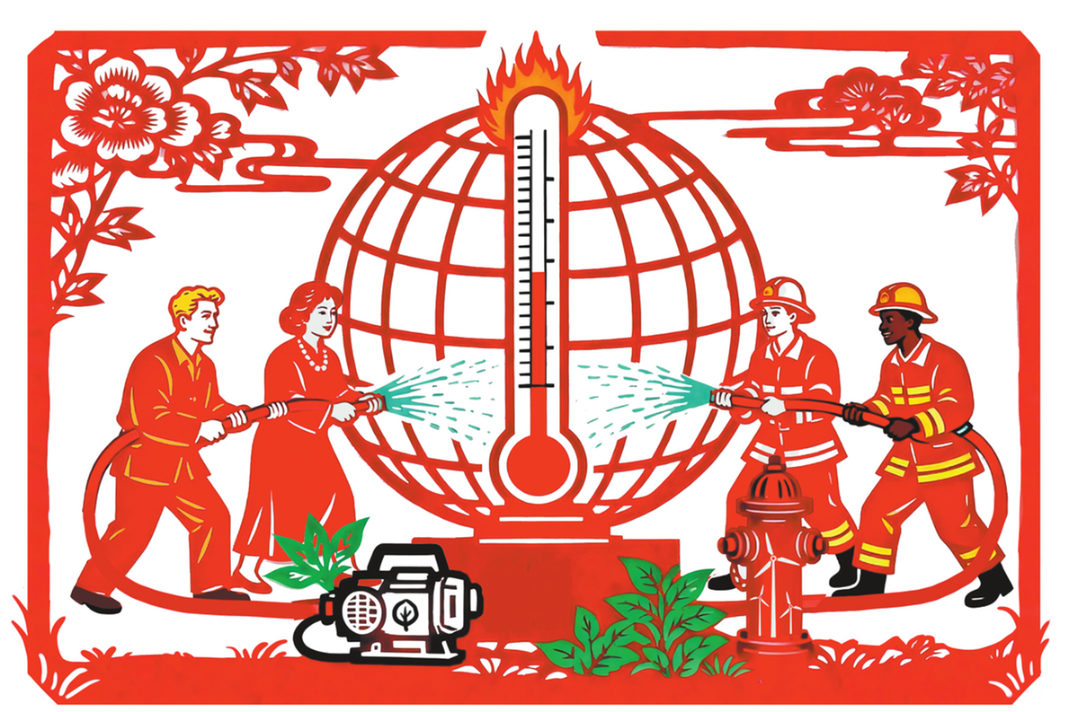False perception


Japan's ambition to play a larger role in global affairs is stymied by its worldview
Japanese Prime Minister Fumio Kishida's recent visits to four African states — Egypt, Ghana, Kenya and Mozambique — were aimed at rallying support from the Global South, including African countries, for the West ahead of the G7 summit to be held in Hiroshima. During his African trip, Kishida emphasized the so-called rules-based international order, which might also be Japan's keyword for the upcoming G7 summit.
Since the outbreak of the Ukraine conflict in early 2022, Japan has seen a dramatic change in its strategic thinking, with its self-positioning shifting from being a bridge between the West and Asia to a link connecting the West with the Global South. In its latest Diplomatic Bluebook, Japan included the term "Global South" for the first time, and recognized that the world is going through a historic transformation, which on the one hand indicates that Japan has woken up to the rise of developing countries, and on the other hand points to the fact that Japan's strategy toward the Global South is based on a worldview, which divides the world into three major blocs — the first is the United States, Europe and Japan, the second is China and Russia, and the third is the Global South countries. This is a misconception of the global political landscape, which does a disservice to Japan's ambition to play a larger role in global affairs, and also hinders the country's efforts to expand its strategic space.
First, the trichotomous view over-simplifies the real world and thus lacks appeal in the international society. Regarding the Ukraine conflict, Japan's position, which is in line with its Western allies, is isolating Russia diplomatically and sanctioning it economically. The Ukraine conflict is no doubt a major global event, but it is by no means the only important issue in the world — climate change, energy security, and sustainable development are also pressing challenges facing humanity. For most countries, forcing them to toe the line of the West on the Ukraine issue is simply not in their interests.
The Russia-Ukraine conflict is in essence a security crisis for Europe, with much of the rest of the world not directly involved. It is first and foremost the European countries that should reflect on the crisis and try to find a solution to it. Earlier this year, many countries that attended the Davos World Economic Forum voiced their discontent about the event's excessive focus on the Ukraine issue and Europe's security.
Second, "Global South" and "rules-based international order "have been the two keywords in Japan's diplomacy narrative over the past year. On the one hand, it indicates that Japan has reassessed the "value diplomacy" Washington peddles around the world and adjusted its diplomatic strategy accordingly. And on the other hand, it reflects Japan's desire to woo the support of the Global South by forging a new narrative, which labels Russia as the biggest violator of international law and a disruptor of the global order, and portrays China as a saboteur of the order in East Asia.
However, countries have witnessed how the US-led West flagrantly violated international law in the Kosovo War, Iraq War and other wars they were engaged in, and the consequent grave human and economic costs suffered by the countries affected. They have also witnessed the West's abuse of economic sanctions and trade protectionism which has violated international rules and exposed their double standards. All of these have weakened the credibility of Japan's proposal to build "rules-based international order".
Third, in Japan's worldview, the globe is divided into two confronting blocs, one led by the West and one led by China and Russia, while the Global South is merely regarded as a political arena the two blocs are racing to woo support from. This view ignores the endogenous dynamics inside the Global South. According to Japan's view, China's efforts to forge ties with developing countries are regarded as filling the strategic vacancy left by the West and expanding its sphere of influence. Japan's role in global affairs is defined as swaying the Global South to the Western bloc and curbing China's influence. But this mindset of countering China will obstruct Japan from seeing the endogenous demands of developing countries to solve their security problems and promote their development.
In March, Iran and Saudi Arabia, the two archrivals in the Middle East, decided to resume their diplomatic relations under a China-brokered deal, which was regarded by Japan as a result of China filling the vacancy left in the region after the West's withdrawal from Iraq and Afghanistan. In fact, Iran and Saudi Arabia's rapprochement is first and foremost an outcome of the war-torn region's desire and endeavors to seek peace and development after years of wars and conflicts due to interventions from non-regional major powers. China has successfully mediated the rapprochement by establishing political mutual trust and enduring economic partnerships with regional countries, which is in line with the trend of the times and caters to the aspiration for peace of countries in the Middle East.
As a major importer of energy from the Middle East, Japan once maintained good relationships with countries in the region, including Iran and Saudi Arabia. It could have played a positive role in brokering peace in the Middle East and resolved conflicts in the region together with China. However, due to its mindset of bloc confrontation, Japan lacks the strategic vision of joining hands with China for political cooperation in a third country and other regions, which has corroded its potential diplomatic assets in the Global South, thus shrinking its strategic space.
As the world is undergoing a historic transformation, the major driving force of evolvement in global politics is the rise of developing countries and their growing awareness of participating in global governance, rather than the bloc confrontations between major countries and their scramble for the Global South. Japan is misjudging the general trend by dividing the world into confronting blocs. The international society is not merely an enlarged version of the Western bloc. Facing the common challenges for humanity, the world is embarking on a historical process of jointly building a global political community, of which multipolarity will be an inevitable result. Japan should follow the trend of the times and promote the development of multipolarity.
The author is an associate professor of international relations at Niigata University in Japan and a senior visiting scholar at Free University of Berlin. The author contributed this article to China Watch, a think tank powered by China Daily. The views do not necessarily reflect those of China Daily.
Contact the editor at editor@chinawatch.cn


































